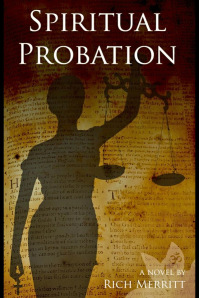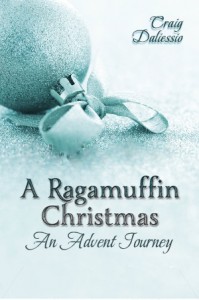If you run over to Amazon.com on the 25th or 26th you can snag a free copy of Fundamental Flaws if you haven’t already bought one. Or you can try to send one as a gift to every fundy you know.
Free is the perfect price for shenanigans. Go nuts!
If you run over to Amazon.com on the 25th or 26th you can snag a free copy of Fundamental Flaws if you haven’t already bought one. Or you can try to send one as a gift to every fundy you know.
Free is the perfect price for shenanigans. Go nuts!
Since the entire country is out standing in lines to buy stuff right now, I thought I’d tell you about three books that you might want to add to your holiday reading list. No lines required. I know all three of the authors and I think you’ll find these interesting (even if you don’t agree with every single thing they say, write, knit, or excavate).
 Nate O’Connor wants to do right. His senior year of college, though, gets off to a rocky start. He’s a student at Bob Johnson University, the flagship institution of higher learning in American fundamentalism, where he and his best friend are placed on spiritual probation after being accused of disloyalty to the school. Their attempt to repair their reputation backfires and when Nate meets two women–one beautiful and smart, the other wise and charming–his entire belief system is uprooted. Nate’s world is further rocked by tragedy and his life will never be the same.
Nate O’Connor wants to do right. His senior year of college, though, gets off to a rocky start. He’s a student at Bob Johnson University, the flagship institution of higher learning in American fundamentalism, where he and his best friend are placed on spiritual probation after being accused of disloyalty to the school. Their attempt to repair their reputation backfires and when Nate meets two women–one beautiful and smart, the other wise and charming–his entire belief system is uprooted. Nate’s world is further rocked by tragedy and his life will never be the same.
Drawing on his own experiences as a student at Bob Jones University, Rich Merritt has crafted an extraordinary story of love, hope, loss, betrayal and loyalty. Most of all, Spiritual Probation is a deeply compelling exploration into the power of faith – in friends, lovers and God, as each of us defines God, and in the unwavering dictates of our own hearts.
Available on Amazon.com
 A couple college friends of mine have put together a delightful little children’s book with original artwork and a fun story about what it means to be special. Definitely check this one out if you have kids on your shopping list (or buy it for yourself — we won’t judge you).
A couple college friends of mine have put together a delightful little children’s book with original artwork and a fun story about what it means to be special. Definitely check this one out if you have kids on your shopping list (or buy it for yourself — we won’t judge you).
You can get it at Amazon.com
 In 2008, when the mortgage industry collapsed, Craig Daliessio lost his career and his livelihood, becoming homeless. During that time, he began writing a series of Advent stories for his 10-year-old daughter, wishing to capture the joy of Christmas and attempting to look past the dark times in which they were living. Daliessio’s collection of short stories, “A Ragamuffin Christmas: An Advent Journey,” provided him with hope and helped him to overcome his struggles.
In 2008, when the mortgage industry collapsed, Craig Daliessio lost his career and his livelihood, becoming homeless. During that time, he began writing a series of Advent stories for his 10-year-old daughter, wishing to capture the joy of Christmas and attempting to look past the dark times in which they were living. Daliessio’s collection of short stories, “A Ragamuffin Christmas: An Advent Journey,” provided him with hope and helped him to overcome his struggles.
“A Ragamuffin Christmas: An Advent Journey” highlights the lives of 24 uniquecharacters and their holiday stories. Daliessio depicts individuals with varied backgrounds and problems, with each one laying their worries, fears, and troubles at Jesus’ feet during the celebration of His birth. From a Roman soldier to a murderer, a broken-hearted mother to a patriarch, each one experiences a life-changing moment of redemption through Christ.
A Ragamuffin Christmas is available via Amazon and Kindle Download
I’m happy to announce today that my (very short) e-book Fundamental Flaws: Seven Things Independent Fundamental Baptists Get Wrong (And How to Fix Them) is now available on Amazon for Kindle reader! This book includes both familiar posts from the best of SFL plus some brand new material.
This isn’t an exhaustive tome (30 pages can only hold so much) nor is it stuffed full of citation, cross-references, and Bible verses. I’ve been asked over and over by people who have happened by this blog why I don’t spend more time pointing out the RIGHT way to do things instead of simply harping on things that are wrong with fundamentalism. In that spirit, I’ve included not only a discussion of seven problem areas in fundamentalism but also a brief statement of what I think would help fix them.
Now in the interest of getting this book into the places where it may do the most good, I’d like to make a very special offer to any current student at a Fundy U: send me a note via the contact form or e-mail books@stufffundieslike.com using your student e-mail address and I’ll shoot you back a link to a PDF download of this book which you can feel free to share with other students if you dare.
I’d like once again to thank Ted Williams who did some really great illustrations that add a lot to the book. Buy a download for yourself and then buy one for every fundy on your Christmas list. Then all that remains is to sit back and watch the fun.
Today we have a guest post by Robb Ryerse, a former fundamentalist pastor who has just released a new book about his transformation away from fundamentalism. If you’d like to hear more from Robb he’ll be on the Ragamuffin Show tomorrow night at 8.
When I was in high school, some of my friends and I wanted to play some basketball in the church gym on a Sunday afternoon. I called my uncle, the chairman of the trustee board, and asked for permission. He said, “No.” Sporting events weren’t allowed at church on Sundays. I could hear his TV in the background. He was watching the game.
For two summers in college, I did a pastoral internship at my home church. One morning, our senior pastor announced that I would be attending a sacred music conference sponsored by Patch the Pirate’s Majesty Music. I was going because he thought my CCM (Steven Curtis Chapman and Steve Camp) was too worldly.
In college I dated a girl who was King James Only. Though I attended a proudly fundamentalist Bible college, we weren’t taught to exclusively use the KJV. But she did. And so, every day for the two months that we dated, I proudly carried my KJV Ryrie Study Bible to chapel. The day we broke up was the last day I opened that particular Bible.
I’ve had countless conversations with church people about all sorts of “important” issues: Whether or not smoking is a sin. Whether or not a Christian can have a tattoo. If it’s acceptable for a believer to vote for a Democrat. If Christians should boycott Disney. What is the appropriate length of a lady’s skirt.
Like so many others who grew up in fundamentalism, I’ve experienced my fair share of condemnation and craziness. And eventually, it all got to be too much. I had to leave fundamentalism.
Ultimately, however, it was not the legalistic dos and don’ts that drove me away from the fundamentalism of my upbringing. It was something much more, well, fundamental than that.
About eight years ago, I was pastoring a fundamental Baptist church where I was preparing to preach through Genesis. I knew all of the answers I had been taught – literal seven-day creationism, a literal walking-talking snake, a literal garden with a literal angel with a literal flaming sword.
And I also knew the questions that began to gnaw at me:
• Why do Genesis 1 and 2 sound like they were spoken in two different voices?
• Where did Cain’s wife come from?
• What happened to the dinosaurs?
• Doesn’t a global flood feel like a bit of an over-reaction?
• How could God be willingly tied to such a family of scoundrels?
These questions exposed that the pat answers of my fundamentalist upbringing were no longer resonating with me. If the answers I had always been told were shaky, maybe the whole system was too. This I knew with certainty – if I verbalized the doubts I was experiencing in a sermon, I would be fired.
This realization sent me spiraling into a spiritual depression, a dark night of the soul, that lasted for many months. When I eventually emerged from it, my own fundamorphosis was well underway. A fundamorphosis is the theological transformation that frees someone from fundamentalism.
My fundamorphosis has freed me to embrace grace and mystery like never before. I now have a belief system that is big enough to handle my doubt. I am very comfortable saying, “I don’t know.” I don’t feel the need to convince everyone to agree with me nor to condemn them when they don’t. I think I’m a lot more humble, honest, and hopeful. More than anything, my fundamorphosis has been about becoming something fundamentalism never encouraged. I became authentic. I am finally free to be me.
—
 Robb Ryerse is the author of the new book Fundamorphosis: How I Left Fundamentalism But Didn’t Lose My Faith. Available now on Amazon. He is the pastor of Vintage Fellowship (www.vintagefellowship.org) in Fayetteville AR. He blogs at www.thegrenzian.com.
Robb Ryerse is the author of the new book Fundamorphosis: How I Left Fundamentalism But Didn’t Lose My Faith. Available now on Amazon. He is the pastor of Vintage Fellowship (www.vintagefellowship.org) in Fayetteville AR. He blogs at www.thegrenzian.com.
Right now I’m in the process of putting together a short e-book with a compilation of writings from SFL organized by topic. My working title is “Fundamental Flaws: Seven Things Baptist Fundamentalists Get Wrong (And How To Fix Them).”
Some of the new material I’m writing comes in the first section of the book which I’ve entitled simply “Church”
Communion Isn’t Optional.
The bread. The cup. The Gospel.
For millennia the Eucharist and the Scriptures were the focus of the Christian service as the pageantry of Christ’s sacrifice and the truth of his earthly teachings were played out in both word and ceremony. But fundamentalism has largely stripped from the church the sacredness of the Lord’s Supper, claiming perversely that to remember Christ’s sacrifice too often would somehow make it trivial or trite. A few celebrate the holy meal monthly but many consign it as infrequent as twice a year.
If you can believe that praying a blessing over every meal (including the nachos you had during a ball game) is a meaningful act of thanksgiving but also believe that taking of communion every week makes it somehow an empty ritual then would probably make a good fundamentalist.
Here’s a bit of life-changing news for fundamentalists: Communion Shouldn’t Scare You. It’s about grace not law. It’s about mercy not judgment. Some fundamentalist pastors have actually told me that the infrequency of the Lord’s Table is for our own protection. After all, God kills people who drink the cup unworthily or flippantly and we are all unworthy creatures full of hidden sin and craven desires. Why take the risk of divine judgment more often than absolutely necessary?
With that they turn Christ’s body and blood into the clenched fist of law not the loving hand of grace. That’s tragic. It’s as if they’re shouting “Sew back again the temple veil and don’t approach the dreaded Mercy Seat if you are not good enough. And you will never be good enough!”
The Gospel Isn’t Optional
The Gospel has met a similar fate to communion in fundamentalism. Perhaps it’s that Christ’s teachings of neighbor-love and self-sacrifice are just too easy to understand without pastoral embellishment. Perhaps there just weren’t enough rules found in the red letters of the Bible to suit the masochistic urges of the perpetual legalists in the pews. Perhaps the pastors just felt like re-telling the old, old story just wasn’t doing enough to fill the pews (or the offering plates). Whatever the case, the fundamentalists sermons got longer, the texts got shorter, and the Gospel itself all but disappeared, in favor of by self-righteous rants, amusing anecdotes, and various calls to moral action.
“Sin and Why I’m Against It” is now the topic of choice in most fundamentalist pulpits because yelling loudly takes little thought or planning. Wherever the Scriptures happen to be found they mainly serve only as a springboard for the pastor to launch into a litany of his favorite political, cultural, and personal gripes. Badmouthing those not present becomes par for the course. Guilt trips to inspire trips down to the “old-fashioned altar” are the mainstay of the service.
Jesus Isn’t Optional
Travel to a fundamentalist church this Sunday and you’ll like as not find a Christianity that has all but forgotten about its Christ. Jesus is not there in sermons. He is barely there in the songs. A survey of whatever religious art and architecture remains in those steel-frame and store-front churches will find Him having completely vanished altogether. A person not familiar with the story of Christianity might sit in such a church and listen to such a service and never really know who Jesus was or what He did.
Jesus has left the building but He is not completely gone. If they would but only listen they would hear Him just outside the door as He whispers in. “You will seek Me and find Me when you search for Me with all your heart.”
Perhaps someday they will notice He is no longer there and go to look for him.